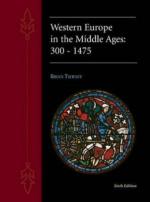|
This section contains 2,671 words (approx. 9 pages at 300 words per page) |

|
Music and Philosophy. The study of music in the Middle Ages embraced much more than the art of composition and performance. Like the other arts of the quadrivium (arithmetic, geometry, and astronomy), music was considered a science of the cosmos. According to the medieval theorists, its ultimate object was knowledge of the underlying harmony of the universe. For this reason music was often held to be the most fundamental of the arts, the one nearest to philosophy. Just as medieval writers on medicine gave primacy to speculative medicine over its actual practice, writers on music theory generally believed that the philosopher of music was the true expert; a musician in the modern sense of the word would have been considered only a practitioner of sound.
Boethius's Musical Hierarchy. The emphasis on music as an intellectual discipline derived in large part from Boethius (circa 480 - circa...
|
This section contains 2,671 words (approx. 9 pages at 300 words per page) |

|




